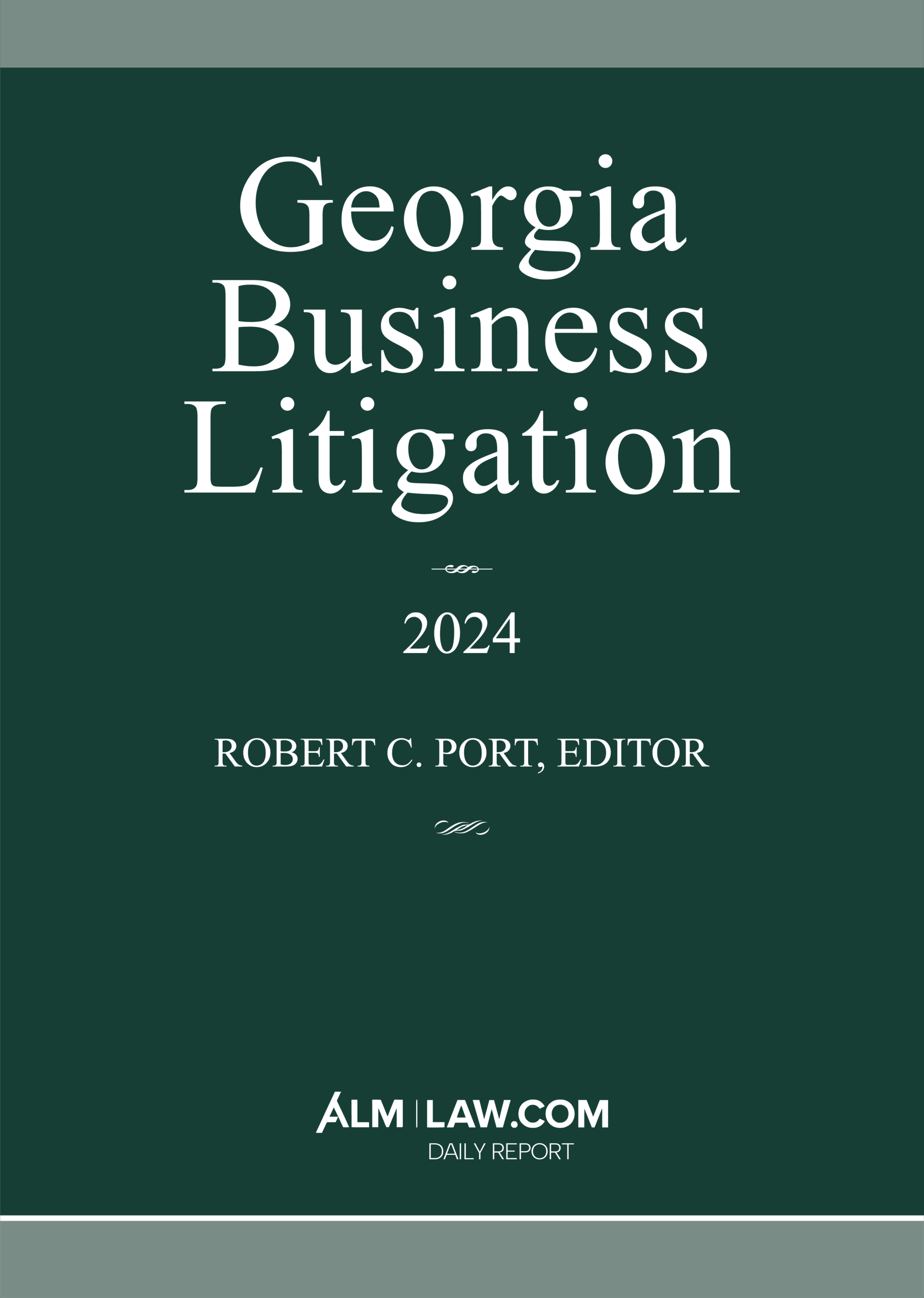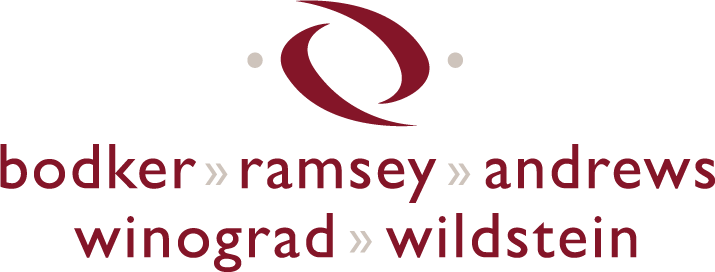Atlanta Attorneys Selected to 2024 Georgia Super Lawyers Lists
Nine Bodker Ramsey Andrews Winograd & Wildstein attorneys were named to the 2024 Georgia Super Lawyers list. The attorneys included in the Georgia Super Lawyers list are:
- Steve Andrews – Family Law
- Brian Bodker – Business/Corporate
- John Killeen – Family Law
- Jake Maurer – Business Litigation
- Tim Ramsey – Business/Corporate
- Tom Rosseland – International
- Robert Wildstein – Business Litigation
- Harry Winograd – Business Litigation
- Jessica Wood – Business Litigation
Furthermore, Super Lawyers placed Robert Wildstein and Jessica Wood among the Top 100 lawyers in Georgia for 2024.
Published each year, Super Lawyers is an independent rating service that recognizes the annual achievements of attorneys throughout the country. No more than 5% of all practicing, eligible attorneys will be selected annually, and the process is repeated each year.

Cyber Security Tips to Protect Privacy and Stay Safe Online
October is Cyber Security Month. Here are some quick reminders to protect your privacy and stay safe online.
Cyber Insurance is readily available and can cover a range of cyber crimes: Cyber attack coverage (pays for the removal of a virus and reprogramming of desktops, laptops, smartphones, tablets, Wi-Fi routers and other internet access points, such as smart home devices and security systems); Cyberbullying coverage (helps you deal with online harassment that results in wrongful termination, discipline from school, temporary relocation expenses, temporary private tutoring, lost wages and legal expenses); Cyber extortion coverage (helps you recover from ransomware attacks that block you from accessing your personal data and demanding a fee to regain control); Data breach coverage (helps pay for services if personal data entrusted to you is lost, stolen or published); Online fraud coverage (pays for direct financial losses due to problems like identity theft, unauthorized banking or credit card transfers, phishing schemes and other types of fraud). Many companies offer cyber insurance, and some companies offer special packages or rates in combination with your homeowner insurance, antivirus software, or identity theft protection services. If you have insurance, review your policy for important terms and renewal dates. If you don’t have insurance (or aren’t sure), check with your insurance broker, antivirus or identity theft provider for available plans.
Tips to prevent Cyber Attacks. Use antivirus software and an identity theft protection service. Use two-step authentication for logins. Change passwords periodically, use strong passwords with letters, numbers and characters, and don’t use the same password for multiple logins. Use a password manager to keep track of your passwords. Use safe payment methods for online shopping, such as PayPal or a credit card. Keep your computer, devices and applications updated. Backup digital data to a cloud service or separate hard drive.
If your computer is infected (or lost), isolate the infected device, power it off, and remove from your network. Isolate or power off other devices on the network. Take backup data offline. Change all account passwords using a secure device. Contact law enforcement or the FBI Internet Crime Complaint Center (IC#3 at www.ic3.gov
Wire Fraud is Rampant. Cybercriminals are hacking or spoofing email accounts and sending messages with fake wiring instructions.
These messages are convincing and sophisticated. Always independently confirm wiring instructions in person or via a telephone call to a trusted and verified phone number.
Read MoreNaked Licensing in Intellectual Property: Striking a Balance between Brand Expansion and Quality Control
Naked licensing occurs when a trademark owner licenses their mark to another party without actively maintaining the necessary quality control over the products or services associated with the licensed mark. When a trademark owner licenses their mark without enforcing quality standards, they risk diluting the distinctive character and tarnishing the reputation of the brand. This practice raises profound legal and practical implications that can impact brand value, consumer perception, and the very essence of trademark protection.
What Are the Benefits of Naked Licensing?
- Brand Expansion: Naked licensing can allow a trademark owner to rapidly expand their brand’s reach by licensing it to various products, services, or markets. This can lead to increased brand visibility and recognition.
- Revenue Generation: Licensing a trademark without stringent quality control may attract more potential licensees, thereby generating higher licensing fees and royalties for the trademark owner.
- Reduced Costs: By not imposing rigorous quality control measures, the licensor may save costs related to monitoring, audits, and other quality assurance efforts.
- Market Penetration: Naked licensing might facilitate entry into new markets where the licensee has better market knowledge or distribution channels. This can help the brand quickly establish a presence in previously untapped regions.
- Small-Scale Operations: In cases where the trademark owner is not concerned with maintaining a consistent brand image, such as small local businesses, naked licensing could be a simpler and cost-effective option.
- Specific Licensing Goals: In some instances, a trademark owner might prioritize revenue generation over long-term brand protection, making naked licensing a strategic choice.
What Are the Risks of Naked Licensing?
- Trademark Dilution: Without quality control, the licensed mark’s distinctiveness can erode over time. Consumers may associate the mark with varying levels of quality, leading to dilution of its uniqueness and impact.
- Loss of Trademark Rights: Courts have ruled that trademark owners who fail to exercise proper quality control over their licensed marks may lose the legal right to enforce and protect those marks against infringers.
- Consumer Confusion: Inconsistent quality among products or services bearing the licensed mark can confuse consumers and diminish their trust in the brand, potentially leading to decreased sales and brand loyalty.
- Infringement Claims: In cases of poor quality control, third parties may challenge the validity of the trademark, asserting that the owner is not actively using and controlling the mark as required by law.
- Brand Erosion: Naked licensing can lead to a decline in the brand’s value and perception, as consumers may no longer associate the mark with consistent quality. Negative consumer experiences stemming from poor quality can damage the trademark owner’s reputation, affecting their overall business operations.
- Consumer Protection Lawsuits: Consumers who purchase products or services associated with the licensed mark may have legal grounds to sue if they experience dissatisfaction or harm due to inadequate quality.
- Damaged Business Relationships: Licensees may become dissatisfied if the licensed mark’s reputation suffers due to inadequate quality control, leading to strained business relationships.
- Limited Long-Term Growth: While there might be short-term gains, the long-term implications of naked licensing can limit the brand’s potential for sustainable growth and global recognition.
How to Avoid the Risks of Naked Licensing?
There are a few things that licensees can do to avoid the risks of naked licensing. Here are some tips:
Get legal advice: Before entering into a naked licensing agreement, it is important to get legal advice from an attorney. An attorney can help you understand the risks involved and negotiate the terms of the agreement to minimize those risks.
Understand the Intellectual Property: Make sure that you understand the intellectual property that you granting the right to use. You should also understand the limitations on your use of the IP.
Get everything in writing: The licensing agreement should be in writing and should clearly set out the terms of the agreement, including the rights and obligations of both parties.
Naked licensing serves as a stark reminder that a trademark’s value extends beyond its legal protection to the perceptions and trust it evokes in consumers. Bodker, Ramsey, Andrews, Winograd & Wildstein P.C. is available to assist our clients with upholding quality control measures within licensing agreements. Please contact Amit Patel or your regular Bodker, Ramsey, Andrews, Winograd & Wildstein P.C. attorney for further information.
Read More
Harry Winograd Co-Authors “Limited Liability Company and Partnership Litigation” Chapter of the 2024 Edition of Georgia Business Litigation
BRAWW principal Harry J. Winograd recently co-authored the “Limited Liability Company and Partnership Litigation.” chapter in the 2024 Edition of Georgia Business Litigation.
Georgia Business Litigation, a comprehensive one-volume guide, addresses the various matters encountered by business litigators. This authoritative resource is authored by a panel of seasoned Georgia litigators and arbitrators.
Harry represents businesses and individuals throughout the country in all stages of litigation and arbitration in state and federal courts involving LLC and corporate break-ups, restrictive covenants in executive employment (non-competes and no solicitation), trade secrets, breach of contract, breach of fiduciary duty, business divorces, business management and internal succession.
For more information on Georgia Business Litigation, please click here.
Read MoreBRAWW Attorneys Recognized by Best Lawyers in America© 2024
Bodker, Ramsey, Andrews, Winograd & Wildstein, PC is proud to announce the Firm’s attorneys recognized by Best Lawyers in America® 2024, the latest edition of the oldest and most respected peer-review publication in the legal profession. Since it was first published in 1983, Best Lawyers® has become universally regarded as the definitive guide to legal excellence. Best Lawyers lists are compiled based on an exhaustive peer-review evaluation. Inclusion in Best Lawyers is considered a singular honor. The attorneys recognized by Best Lawyers in America® 2024:
Brian D. Bodker – Tax Law
Tim J. Ramsey – Real Estate Law
Robert D. Wildstein – Real Estate Law
Stephen C. Andrews – Family Law and Trust and Estates Law

Harry Winograd Teaches Trial Techniques
Harry J. Winograd joins the faculty of more than 100 nationally recognized trial lawyers, judges, and professors for the 2023 Emory University School of Law Kessler-Eidson Trial Techniques Program. Initially modeled after the National Institute for Trial Advocacy programs, Emory focuses on integrating second-year law student knowledge of substantive evidence with practical trial skills through a “learn-by-doing” format. This year, 290 second-year law students each conduct an evidentiary hearing and a complete jury trial, giving them a strong foundation in the mechanics of litigating a case, from direct and cross-examination to introducing evidence into court. Emory’s Trial Techniques Program is the largest trial advocacy program for law students nationwide and has been recognized by the American College of Trial Lawyers, which has twice conferred on Emory’s program the Emil Gumpert Award for excellence in the teaching of trial advocacy. To learn more about this exceptional program, please visit http://ow.ly/TSsN50OcRbY
Read MoreEight BRAWW Attorneys Recognized as 2023 Georgia Super Lawyers
Bodker, Ramsey, Andrews, Winograd & Wildstein is pleased to announce that Brian D. Bodker, Timothy J. Ramsey, Harry J. Winograd, Robert D. Wildstein, Stephen C. Andrews, Jessica J. Wood, Thomas Rosseland and Jacob A. Maurer are being recognized as 2023 Georgia Super Lawyers, placing them in the top five percent of the lawyers in the state.
Attorneys Harry J. Winograd (Business Litigation) and Stephen C. Andrews (Family Law) have been selected to the list for 20 consecutive years. It is the 19th year for Brian D. Bodker (Business Corporate) and Robert D. Wildstein (Business Litigation). Jessica J. Wood (Business Litigation) has been selected as a Georgia Super Lawyer for 18 years. She has also been selected to the Top 100 Super Lawyer and Top 50 Women Super Lawyer lists. Timothy J. Ramsey (Business Corporate) celebrates his 15th anniversary to the list and Thomas Rosseland (International) has been named to the list for the 11th time. This is the first year selected to the list for Jacob A. Maurer (Business Litigation) after previously being recognized as a Rising Star for 6 years.
Super Lawyers is a rating service that utilizes a rigorous selection process including independent research and peer evaluation of all nominees.
Ultimately only 5% of attorneys are selected to Super Lawyers. To view the entire list, click here.
Read MoreBodker, Ramsey, Andrews, Winograd & Wildstein, PC Expands Corporate and Real Estate Practices
Bodker, Ramsey, Andrews, Winograd & Wildstein, PC is pleased to announce that Christopher Day has joined the Firm as a senior associate, supporting the corporate and real estate practices.
Chris advises clients in various real estate transactions including real estate banking and finance, and commercial development. On the corporate side, Chris represents businesses of all sizes on a variety of matters including entity formation, mergers and acquisitions and corporate governance. Clients include institutional and private lenders, business entrepreneurs, and investors of real estate.
Chris received his Bachelor of Arts degree in Economics from the University of Georgia Franklin College of Arts and Sciences. Chris received his Juris Doctor and Master of Business Administration degree from Georgia State University.
Outside of the office, Chris enjoys playing the piano and spending time with his wife, son and two dogs.
“We are excited to add Chris to our corporate and real estate teams,” said Tim Ramsey, the Firm’s managing partner. “His experience will help us better serve our clients with their core needs in these vital areas.”
To learn more about Chris, his practice or to contact him directly, you can view his bio here.
Read More
